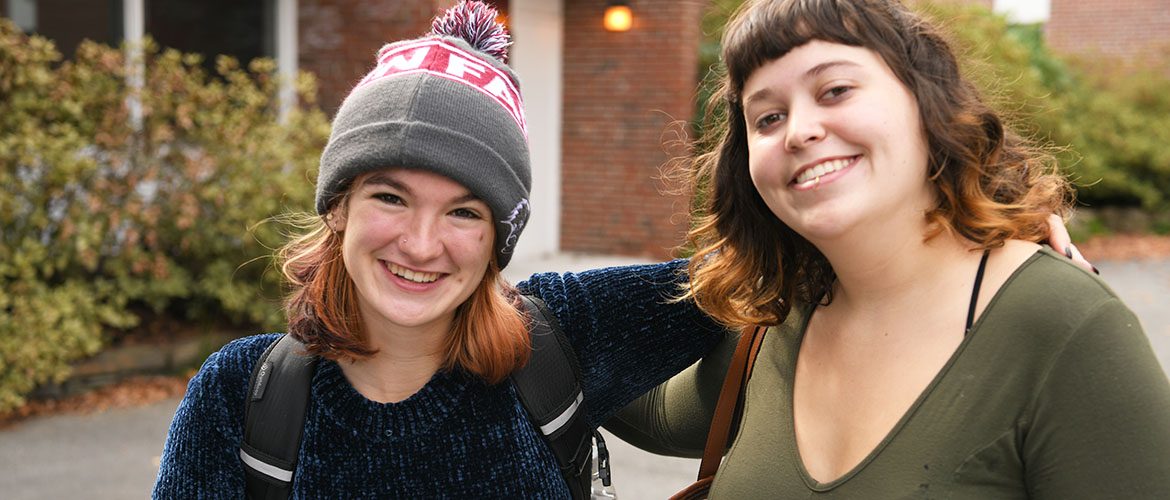For a full list of our online courses, click here.
To search for online and on campus courses, head to the Early College portal, ExplorEC.
Are you looking for something in particular but don’t see it listed or can’t find it in the portal? Reach out! Our team is happy to help you find the right class for you. You can contact the UMF Early College team at earlycollegeatumf@maine.edu.
Contact Us
Kirsten Petroska
Director of Early College Partnerships
Division of Graduate & Continuing Education
University of Maine at Farmington
Theo Kalikow Education Center
186 High Street
Farmington, Maine 04938
tel 207-778-7266
TYY (via Maine Relay Service) dial 711
kirsten.petroska@maine.edu
Mailing address:
Division of Graduate & Continuing Education
University of Maine at Farmington
111 South Street
Farmington, Maine 04938


